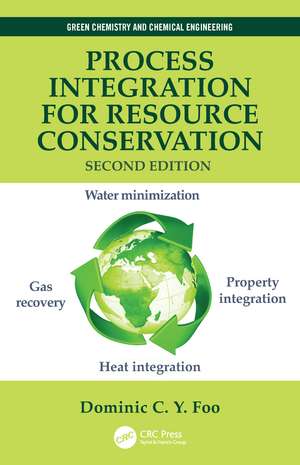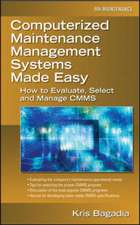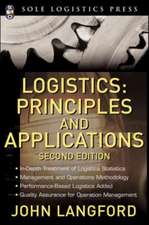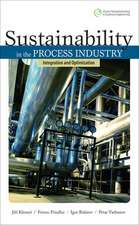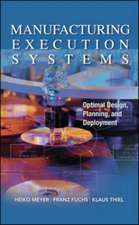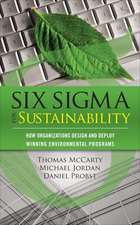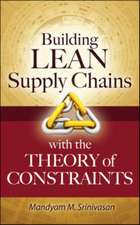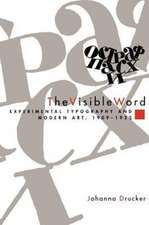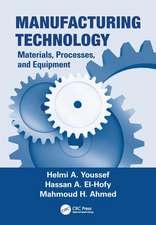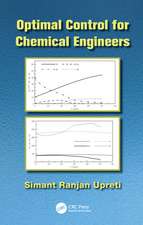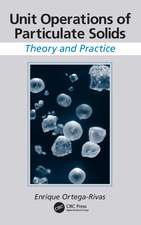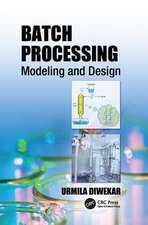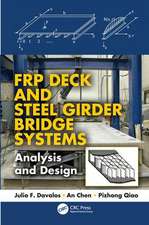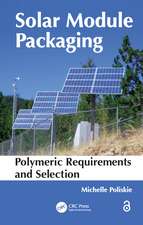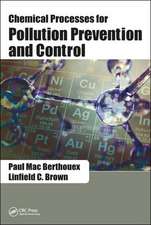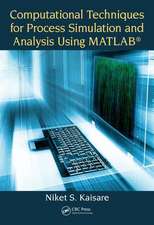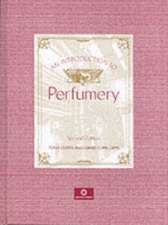Process Integration for Resource Conservation: Green Chemistry and Chemical Engineering
Autor Dominic C.Y. Fooen Limba Engleză Paperback – 31 dec 2024
• Emphasizes the goal of setting performance targets ahead of detailed design following the holistic philosophy of process integration
• Explains various industrial examples step by step and offers demo software and other materials online
• Features a wealth of industrial case studies
• Adds chapters on heat integration, combined heat and power, heat-integrated water network, and retrofit of resource conservation network
• Adds new optimization examples and downloadable MS Excel files on superstructural approaches and automated targeting models for direct reuse, recycle, and regeneration
Ideal for students preparing for real-world work as well as industrial practitioners in chemical processing, the text provides a systematic guide to the latest process integration techniques for performing material recovery in process plants. The book features a solutions manual, lecture slides, and figure slides for adopting professors to use in their courses.
| Toate formatele și edițiile | Preț | Express |
|---|---|---|
| Paperback (2) | 441.88 lei 6-8 săpt. | |
| CRC Press – 15 iul 2012 | 441.88 lei 6-8 săpt. | |
| CRC Press – 31 dec 2024 | 651.72 lei 6-8 săpt. | |
| Hardback (2) | 1072.08 lei 6-8 săpt. | |
| CRC Press – 17 iul 2012 | 1072.08 lei 6-8 săpt. | |
| CRC Press – 31 dec 2024 | 1506.33 lei 6-8 săpt. |
Din seria Green Chemistry and Chemical Engineering
- 18%
 Preț: 849.40 lei
Preț: 849.40 lei - 18%
 Preț: 1336.46 lei
Preț: 1336.46 lei - 28%
 Preț: 1430.10 lei
Preț: 1430.10 lei - 18%
 Preț: 700.75 lei
Preț: 700.75 lei - 30%
 Preț: 1016.94 lei
Preț: 1016.94 lei - 9%
 Preț: 1347.50 lei
Preț: 1347.50 lei - 15%
 Preț: 508.10 lei
Preț: 508.10 lei - 31%
 Preț: 764.62 lei
Preț: 764.62 lei - 14%
 Preț: 1589.39 lei
Preț: 1589.39 lei - 18%
 Preț: 713.39 lei
Preț: 713.39 lei - 25%
 Preț: 496.94 lei
Preț: 496.94 lei - 18%
 Preț: 1590.61 lei
Preț: 1590.61 lei - 29%
 Preț: 1019.32 lei
Preț: 1019.32 lei - 30%
 Preț: 881.30 lei
Preț: 881.30 lei - 15%
 Preț: 459.74 lei
Preț: 459.74 lei - 18%
 Preț: 700.75 lei
Preț: 700.75 lei - 18%
 Preț: 700.75 lei
Preț: 700.75 lei - 15%
 Preț: 585.27 lei
Preț: 585.27 lei - 29%
 Preț: 524.78 lei
Preț: 524.78 lei -
 Preț: 463.30 lei
Preț: 463.30 lei - 15%
 Preț: 533.03 lei
Preț: 533.03 lei - 22%
 Preț: 370.25 lei
Preț: 370.25 lei - 18%
 Preț: 905.11 lei
Preț: 905.11 lei - 18%
 Preț: 700.75 lei
Preț: 700.75 lei - 18%
 Preț: 1319.09 lei
Preț: 1319.09 lei - 18%
 Preț: 788.77 lei
Preț: 788.77 lei - 26%
 Preț: 1101.47 lei
Preț: 1101.47 lei
Preț: 651.72 lei
Preț vechi: 766.73 lei
-15% Nou
Puncte Express: 978
Preț estimativ în valută:
124.70€ • 130.55$ • 103.19£
124.70€ • 130.55$ • 103.19£
Carte tipărită la comandă
Livrare economică 05-19 aprilie
Preluare comenzi: 021 569.72.76
Specificații
ISBN-13: 9781032003931
ISBN-10: 1032003936
Pagini: 534
Ilustrații: 672
Dimensiuni: 156 x 234 mm
Greutate: 0.73 kg
Ediția:2
Editura: CRC Press
Colecția CRC Press
Seria Green Chemistry and Chemical Engineering
ISBN-10: 1032003936
Pagini: 534
Ilustrații: 672
Dimensiuni: 156 x 234 mm
Greutate: 0.73 kg
Ediția:2
Editura: CRC Press
Colecția CRC Press
Seria Green Chemistry and Chemical Engineering
Public țintă
Postgraduate, Professional Practice & Development, and Undergraduate AdvancedNotă biografică
Dominic C.Y. Foo, Ph.D., P.E., is a Professor of Process Design and Integration and the founding director of the Centre for Green Technologies at the University of Nottingham Malaysia. He is a Fellow of the Academy of Sciences Malaysia (ASM), Fellow of the Institution of Chemical Engineers (IChemE), Fellow of the Institution of Engineers Malaysia (IEM). Professor Foo is the Editor-in-Chief for Process Integration and Optimization for Sustainability, Subject Editor for Process Safety & Environmental Protection, and editorial board members for several other renowned journals. Professor Foo has authored more than 220 journal papers and made more than 270 conference presentations. He has been a recipient of the 2019 Innovator of the Year Award from the IChemE and the Young Engineer Award from the IEM, Outstanding Asian Researcher and Engineer 2013 from the Society of Chemical Engineers, Japan, 2016 Top Research Scientist Malaysia 2016 from ASM, and World Top 2% Science of the Stanford List since 2021.
Cuprins
1. Introduction. 2. Data Extraction for Resource Conservation. 3. Graphical Targeting Techniques for Direct Reuse/Recycle. 4. Algebraic Targeting Techniques for Direct Reuse/Recycle. 5. Automated Targeting Model for Direct Reuse/Recycle Networks. 6. Automated Targeting Model for Material Regeneration and Pretreatment Networks. 7. Process Changes for Resource Conservation Networks. 8. Network Design and Evolution Techniques. 9. Synthesis of Resource Conservation Networks: A Superstructural Approach. 10. Extended Application: Synthesis of Inter-Plant Resource Conservation Network. 11. Extended Application: Synthesis of Batch Resource Conservation Network. 12. Extended Application: Retrofit of Resource Conservation Network. 13. Synthesis of Heat Exchanger Network. 14. Combined Heat and Power (CHP). 15. Extended Application: Synthesis of Heat-Integrated Water Network.
Descriere
This book presents state-of-the-art, cost-effective techniques, including pinch analysis and mathematical optimization, for numerous conservation problems. The Second Edition of this best seller adds chapters on heat integration and retrofitting of water networks and features multiple optimisation examples via downloadable MS Excel spreadsheets.
Recenzii
In this book, Dr. Foo manages to elegantly transform the theories and concepts into effective educational tools, exciting reading materials, and very useful applications. … Overall, this is an excellent contribution that will benefit numerous researchers, students, and process engineers and will serve the cause of sustainability worldwide.
—From the Foreword, Mahmoud El-Halwagi, Texas A&M University
The main contribution of this textbook is that it brings together a family of systematic design tools that can be used to determine the most cost-effective measures to implement recycle and reuse of process streams in industrial plants. … suitable for a wide range of audiences, from advanced undergraduate students to practicing engineers from the process industries. … this excellent book comes at just the right time to teach the next generation of process designers how to ‘save the planet’ more systematically and intelligently.
—From the Foreword, Raymond R. Tan, De La Salle University-Manila
This book collects all fundamentals aspects of process integration to enable readers to address issues related to resource management. I strongly recommend this book to everyone interested in the field of process integration."
—Santanu Bandyopadhyay, IIT Bombay
This book serves as good material for process integration … it [also] offers good knowledge of material recovery that helps people [acquire the] basics for doing further research or practical application.
—Cheng-Liang Chen, National Taiwan University
The chapters are written very well and cover all the topics in sufficient detail and clarity. … a wonderful and relevant contribution to the field of process integration.
—T. Majozi, University of Pretoria
—From the Foreword, Mahmoud El-Halwagi, Texas A&M University
The main contribution of this textbook is that it brings together a family of systematic design tools that can be used to determine the most cost-effective measures to implement recycle and reuse of process streams in industrial plants. … suitable for a wide range of audiences, from advanced undergraduate students to practicing engineers from the process industries. … this excellent book comes at just the right time to teach the next generation of process designers how to ‘save the planet’ more systematically and intelligently.
—From the Foreword, Raymond R. Tan, De La Salle University-Manila
This book collects all fundamentals aspects of process integration to enable readers to address issues related to resource management. I strongly recommend this book to everyone interested in the field of process integration."
—Santanu Bandyopadhyay, IIT Bombay
This book serves as good material for process integration … it [also] offers good knowledge of material recovery that helps people [acquire the] basics for doing further research or practical application.
—Cheng-Liang Chen, National Taiwan University
The chapters are written very well and cover all the topics in sufficient detail and clarity. … a wonderful and relevant contribution to the field of process integration.
—T. Majozi, University of Pretoria
